London P&I Club Issues Recommendations on Bauxite Cargoes

The London P&I Club has issued a list of recommendations to owners contemplating the carriage of bauxite cargoes in the wake of renewed concerns about the dangers of cargo mis-declaration and potential liquefaction. In the latest issue of the club’s StopLoss Bulletin, Dr Martin Jonas, of international marine consultant and surveyor Brookes Bell, notes that grades of bauxite containing a high proportion of fines capable of retaining significant moisture are potentially at risk of liquefaction, resulting in cargo shift which may cause the capsizing of the carrying ship.
London P&I Club Addresses "Cappuccino Effect"

The London P&I Club has advised its members on precautions to adopt to detect the presence of cappuccino bunkers. In the latest issue of its StopLoss Bulletin, the club explains that the cappuccino effect is essentially the frothing or bubbling effect caused by compressed air blown through the delivery hose. The aerated bunkers when sounded will give the impression that the fuel is delivered as ordered. In fact, after some time, when the entrapped air in suspension settles out of the fuel oil, the oil level drops and a shortfall is discovered.
London Club Stresses Need to Observe Passage Planning
The London P&I Club said it has seen a rise over the past 12 months in the number of deficiencies relating to Temporary and Preliminary (T&P) notices to mariners, and an increase in negative findings in relation to the management of radio navigation and meteorological warnings. In the latest issue of its StopLoss Bulletin, the club said its Ship Inspection Programme has identified failure to manage T&P notices, or to apply them to the ship’s chart folio, as a commonly recorded occurrence. It said, “If T&P notices are not consistently applied to the chart folio, the ship’s navigating officer and officers of the watch may be deprived of valuable passage planning information. T&P notices contain a vast array of information which may influence the planning or conduct of a passage.
London P&I Club Renews Warning on Cargo Liquefaction
The London P&I Club said the lifting of an iron ore ban in India, together with the recent total loss of two ships, has put the spotlight once again on the problem of cargo liquefaction. In the latest issue of its StopLoss Bulletin, the club said, “There are specific challenges involved in the export of iron ore fines from Indian ports during the monsoon season which can increase the moisture content of the cargo to levels where liquefaction can occur. This can result in severe loss of a ship’s stability and, sometimes, in the vessel sinking. Other cargoes such as nickel ore are also prone to liquefaction. “Last month, the Indian Supreme Court lifted the ban imposed in 2010 in Goa on the mining…
P&I Club Analysis Warns of False Sense of Navigational Security
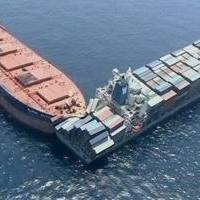
The London P&I Club says that a recent analysis of collision cases has highlighted the effect complacency has on casualties. The club recently undertook a ‘root cause’ analysis of collision cases, which concluded that the majority could be categorised as human error, with complacency often a significant contributing factor. In the latest issue of its 'StopLoss Bulletin', it cites the case of a bulk carrier which was approaching the end of a Traffic Separation Scheme. The ship was slowing to make an ETA at a pilot station in the adjacent Inshore Traffic Zone…
London P&I Club: Complacency is Significant Factor in Collisions
The London P&I Club says that a recent analysis of collision cases has highlighted the effect which complacency on the bridge of the vessel can have on the incidence of casualties. The club recently undertook a ‘root cause’ analysis of collision cases which concluded that the majority could be categorized as human error, with complacency often a significant contributing factor. In the latest issue of its StopLoss Bulletin, it cites the case of a bulk carrier which was approaching the end of a Traffic Separation Scheme. The ship was slowing to make an ETA at a pilot station in the adjacent Inshore Traffic Zone, and was soon to make a substantial alteration of course to starboard in accordance with its passage plan. At the same time, the vessel was being overtaken by a container ship.
London P&I Club Warns on Need for ECDIS Training
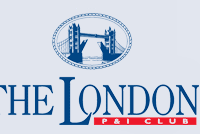
The London P&I Club said the timetable for the mandatory implementation of ECDIS (Electronic Chart Display and Information System) is advancing and that owners must take account of the potential risks involved in replacing more traditional means of voyage planning and monitoring with advanced technology. In the latest issue of its StopLoss Bulletin, the club notes, “Ineffective use of any electronic navigational aid can lead to marine accidents. A causative factor in a number of recent grounding accidents is the incorrect operation of ECDIS.
Negative Findings Reported on Enclosed Space Entry
The London P & I Club noted that reports generated during the club's ship inspection program show an increase in negative findings in relation to enclosed space entry on board ships. It said incidents continue to occur year-on-year despite a global acceptance of industry standard procedures. In the latest issue of its StopLoss Bulletin, the club noted, “Inspection findings vary in nature, but the enclosed space entry permit to work (PTW) and associated prescribed steps regularly present themselves as sources of negative findings in ship inspections. The club added, “An alarming trend of tick-box culture has recently been detected in routine ship inspections. The importance of proper consideration of the steps which are required for an entry permit to be granted should not be overlooked.
London P&I Issues Warning on Bagged Rice Cargoes
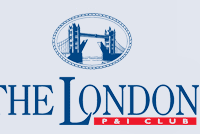
The London P&I Club has advised shipowners to seek advice before loading bagged rice cargoes in view of the inherent risks associated with the trade and an increase in the severity of claims in recent years. In the latest issue of its StopLoss Bulletin, the club notes that poor freight markets have seen an increase in the number of owners employing their ships in the bagged rice trades. It says the size of individual consignments being shipped from southeast Asia to the Middle East and sub-Saharan Africa has also increased…
London P&I Club Issues Warning
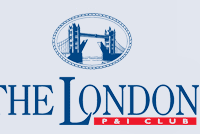
The London P&I Club has warned that failure to maintain a proper record of the inspection and testing of onboard lifting equipment can jeopardize owners’ position in the event of a claim. The cub’s inspection program has recently highlighted several instances of negative findings regarding the ship’s lifting equipment register. In the latest edition of its StopLoss Bulletin, the club says, “Anyone procuring lifting equipment should ensure that they are buying genuine and properly certificated equipment as there are counterfeit products on the market.
London P&I Club Urges Maintenance of Hold Pipework
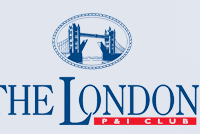
The London P&I Club has urged shipowners to ensure proper maintenance of cargo hold pipework in order to prevent wet damage to cargo, which has become a regular source of claims. In the latest issue of its StopLoss Bulletin, the club notes, “Leakage from pipework within holds continues to be a common cause of cargo wetting. Of particular concern are leaking top-side tank drain pipes and wells when located near or below the load water line, which can result in catastrophic hold flooding. “By way of preventative maintenance, pipes should be monitored for signs of corrosion and kept well coated.
Ship Vettings Reveal Gasket & Pump Deficiencies
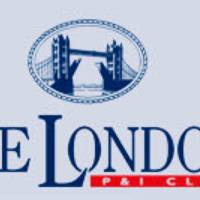
London P&I Club issues warning on manhole gasket and bilge pump shortcomings. THE London P&I Club has reported a growing incidence of shortcomings with regard to the condition of manhole cover gaskets on board ships. In the latest issue of its StopLoss Bulletin, the club says that feedback from its Ship Inspection Programme indicates that an increasing number of inspectors are reporting issues in this respect. The club says it is standard practice for enclosed onboard spaces such as ballast tanks…
Technology Can Cause Costly Distractions
THE London P&I Club has warned that improvements in telecommunications technology on board ships can create unwelcome distractions, leading to casualties. In its StopLoss Bulletin, the club notes that an alleged causative factor in a recent pollution incident involved the duty officer attempting to make a Skype call on his laptop during his watch. A VDR playback revealed that the officer of the watch (OOW) was listening to a news bulletin from his home country which was being streamed through a laptop computer. The officer appears to have missed a radar target and a VHF warning call while listening to the breaking news from home. The club says…
London Club Warns Against Inflated Claims, Legal Delays

THE London P&I Club has warned that shipowners face a significant increase in exposure to claims and fines levied against them in jurisdictions which suffer from a combination of high interest rates and a reputation for protracted legal proceedings. In the latest issue of its StopLoss Bulletin, the club notes, “Brazil provides a good example of such a jurisdiction. The prevailing interest rate is in the region of 12 per cent per annum, in addition to which the courts apply a further variable uplift to take into account the effects of inflation, which can be as much as 6 per cent.
London Club: No Exemptions from IMSBC code
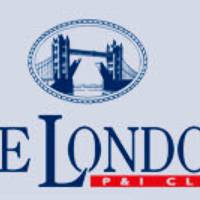
London Club says owners must not accept exemptions from IMSBC code for DRI cargoes. THE London P&I Club has urged shipowners to be alert to any attempt by shippers and other cargo interests to claim exemptions from the International Maritime Solid Bulk Cargoes (IMSBC) Code in connection with the carriage of DRI (Direct Reduced Iron) cargoes. Long-standing concerns about the carriage of DRI - involving the possibility of a chemical reaction between the cargo and water, leading…
London Club Warning on Fi-Fi Preparedness
The London P&I Club said the response to two recent onboard cargo fires has highlighted the value of both fire-fighting training and realistic shipboard drills for ships’ crews. In the latest issue of its StopLoss Bulletin, the club refers to a case where smoke was seen by the crew of a containership to be escaping from a container stuffed with bone meal in bulk. The crew quickly established the best means of fighting a fire involving that commodity and then executed a well-drilled plan to extinguish the fire by flooding the container using a fire-fighting lance connected to a fire hose. The lance was introduced into the box through a hole which the crew punctured in the roof of the container.
London Club Warns of Over-Reliance on GPS
The London P&I Club said a recent casualty involving a containership serves as a timely reminder of the consequences of failing to check navigation charts for information about corrections that need to be applied to satellite-derived positions. In the latest issue of its StopLoss Bulletin, the Club refers to an incident in which a containership grounded as a result of total reliance on GPS, coupled with a failure to recognise that a significant correction had to be applied to GPS positions before they were plotted on the chart. During a coastal passage, the ship ran aground after a navigating officer commenced a significant alteration of course about half a mile before he reached the intended alter-course position.
Dangers of Chemical Cargo Misdescription
The London P&I Club reported that one of its members recently suffered an onboard fire as a result of the wilful misdescription by shippers of a chemical cargo. London P&I warns that there is a danger of further such incidents occurring, given the nature of modern transport logistics. The cargo involved was calcium hypochlorite, a chemical in widespread use throughout the world, most commonly in the treatment and purification of water, and which has some inherent properties which can make it extremely dangerous. For example, if it becomes too hot, or contaminated with impurities, a reaction may set in, leading to fire or explosion. Several such incidents occurred in the late 1990s, some involving explosions in onboard containers which resulted in extensive damage to large oceangoing ships.
London Club highlights Dangers of Hatch Cover Ops
needed to ensure the safety of personnel involved. Department. removal operation on board a vessel at anchor in the southern North Sea. on deck, the chief officer came between it and the accommodation bulkhead. and crushing his pelvis against the bulkhead. an easy exit. cover being lifted by the derrick of a dumb lighter. fell to his death.
London Club warning on vessel arrests in Egypt
The London P&I Club has warned its members about a spate of vessel arrests in Egypt, and in particular the port of Suez, in respect of claims for unsettled invoices in respect of supplies and/or services which have supposedly been provided to vessels. Writing in the latest issue of its StopLoss Bulletin, the Club says that, although suppliers have submitted false invoices with apparently authentic signatures of ship's staff and the ship's stamp, in most instances the master has been unable to explain how these have been affixed to the invoice. In other cases, invoices have been completely forged. Suppliers and their lawyers have also ordered the arrest of vessels as security in some instances.
Masters Must be Prepared to Question Pilots
pilot error has played a contributory role. of an accident. become inevitable. majority play a very positive role in contributing to safe navigation. and pilot of the bulker. pilotage when a local ferry crossed into its path. ferry proved unsuccessful. master and the pilot ensured that a serious casualty was avoided. and vigilance on the bridges of ships navigating in heavy traffic areas.
Maritime Industry May Lack Sensitivity to Psychological Issues
THE London P&I Club has drawn attention to the continuing need for recognition and understanding of psychological disorders affecting those employed in the shipping industry. In the latest issue of its StopLoss Bulletin, the Club indicated that psychological problems are often not identified, or dealt with, as quickly, as knowledgably or as sympathetically as is the case with physical illness and injury. The Club quotes Prof Francesco Amenta, CIRM Scientific Director, who stated that issues including stress, anxiety and depression should be handled at the earliest possible opportunity. He went on to indicate that shipping is much more sensitive to technology and safety issues than it is to health problems.
Caution on the Need to Supervise Visitors
Following a recent tragic accident in which a cargo inspector died from inhalation of a fumigant in a bulk carrier’s hold, the London P&I Club has warned its members of the particular need to control and supervise the movement of all onboard visitors when fumigation has taken place. In the latest issue of its StopLoss Bulletin, the Club cites an incident in which a cargo of Argentinean grain underwent surface fumigation on a voyage to the Middle East. On completion of loading, aluminium phosphide tablets had been laid on the surface of the grain in each hold. On passage, the tablets decomposed, giving off the fumigant phosphine, which is heavier than air.






